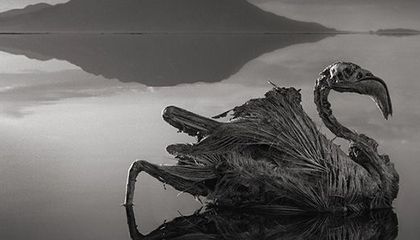
This Untitled piece from 1993 (est. £70-90,000) is an important example of El Anatsui’s dialogue with traditional and local media in his early works and bears the hallmarks of Uche Okeke’s teaching and influence. In 1970, Okeke joined the Fine Art Department of the 

University of Nigeria in Nsukka, urging his students to seek inspiration from the region surrounding the university, an idea cultivated as part of the Zaria Rebels in an attempt to decolonize the visual arts in post-colonial Nigeria. The coloured lines prevalent on the
present lot are inspired by Uli drawings, traditional wall mural and temporary tattoo designs practiced amongst Igbo women in South-eastern Nigeria. Uli designs were particularly relevant in the practice of the Nsukka group and became emblematic of their group style called Ulism.
Structurally, the present lot could be perceived as a representation of a bust of a woman on which the Uli design sits, but unlike the practice of the Igbo women, Anatsui’s designs have a degree of permanence.
Untitled compels the viewer to observe it from different angles and distances, the work also presents itself as innately abstract and non-literal, taking on new meanings, new shapes with each perspective.
• • •
Missing some Tweet in this thread? You can try to
force a refresh













